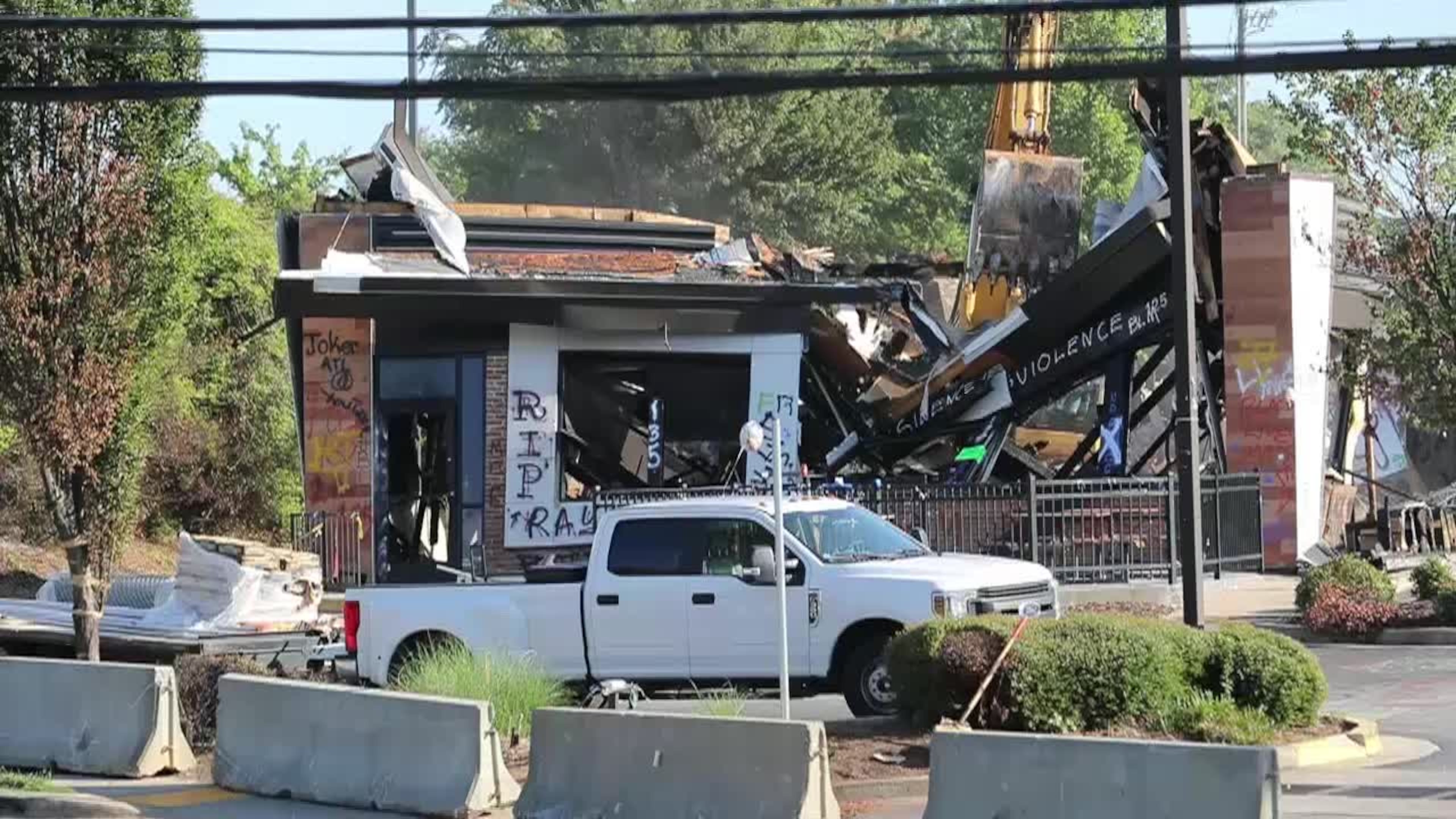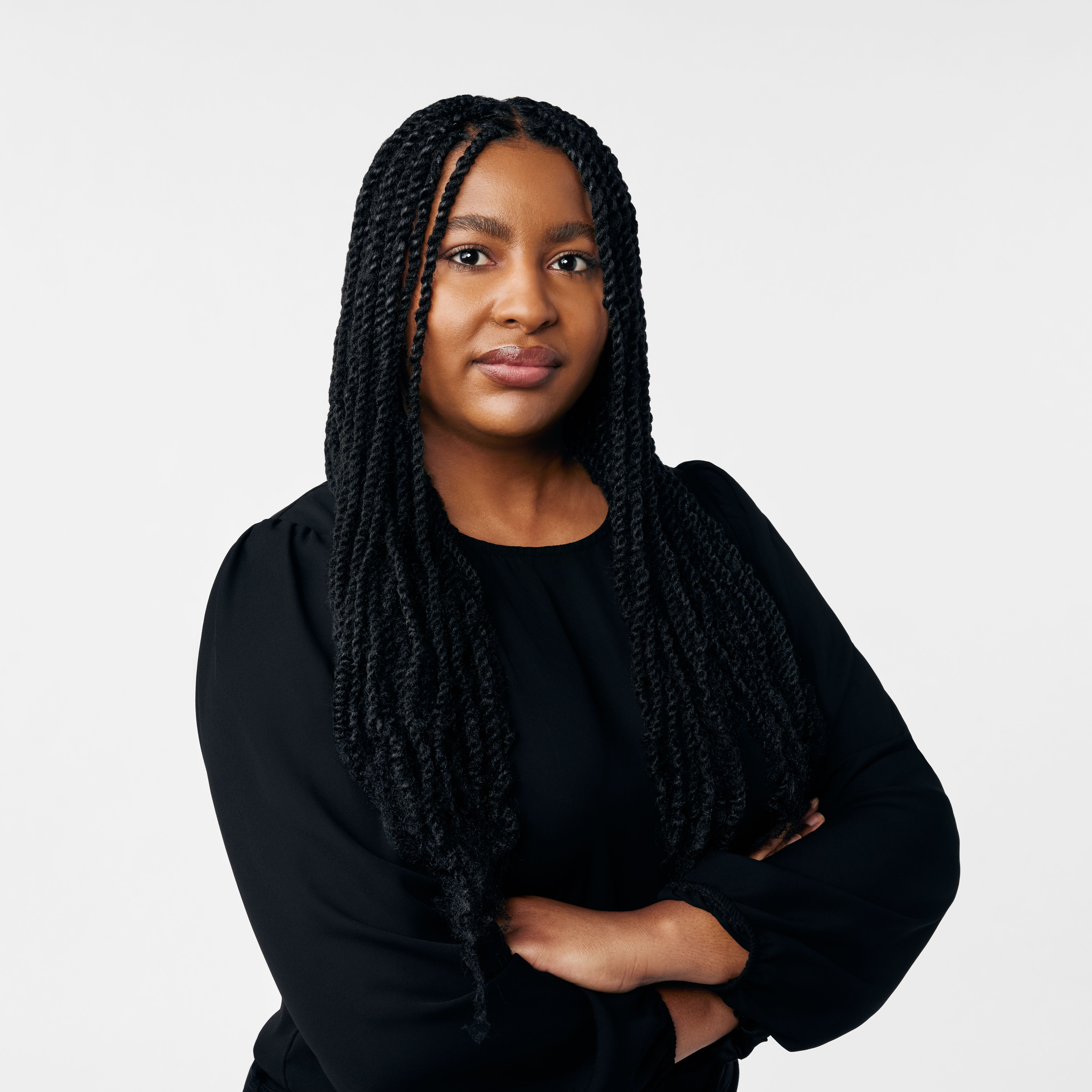Charges dropped against officers involved in Rayshard Brooks’ death

More than two years after the police shooting that killed Rayshard Brooks in the parking lot of a south Atlanta Wendy’s, a special prosecutor has decided not to criminally prosecute the two Atlanta police officers involved in his death.
Pete Skandalakis, executive director of the Prosecuting Attorneys’ Council of Georgia, announced Tuesday that he plans on administratively dismissing all 11 criminal counts, including a felony murder charge, against Officer Garrett Rolfe, who shot Brooks on June 12, 2020. Authorities also cleared the second officer, Devin Brosnan, who was accused of aggravated assault and violation of oath of office.

The decision closes a significant chapter in one of the most controversial and volatile police shooting cases in Atlanta’s history. The stark videos showing a Black man shot to death by a white officer as he ran away intensified Atlanta’s protests and drew national attention as demonstrations around police violence roiled America following George Floyd’s murder in Minneapolis just weeks earlier.
Brooks was shot and killed after APD officers Rolfe and Brosnan tried to arrest him in the parking lot of the fast food restaurant off University Avenue. Skandalakis had been appointed by Attorney General Chris Carr to handle the charged case after Fulton District Attorney Fani Willis recused herself upon taking office last year.
The gravity of Tuesday’s decision and the high stakes for the community was not lost on Skandalakis. Before making his announcement, he had notified local and state authorities so they could be prepared in case civil unrest followed. He said he also tried to meet with Brooks’ widow before the press conference to deliver the news of his decision, but was unable to reach her.
“Black lives do matter,” he said. “I’ve spent my entire career representing Black victims of crime. I understand that the encounters between police and the African American community at times are very volatile. But I would ask them to look at the facts of this case, and this isn’t one of those cases... This is a case in which the officers were willing to give Mr. Brooks every benefit of the doubt, and unfortunately by his actions, this is what happened.”
Former Gwinnett County District Attorney Danny Porter, who Skandalakis asked to examine the case, said despite the national attention the case received, the evidence doesn’t support contentions of police misconduct.
“Based on the facts and circumstances confronting Officer Rolfe and Officer Brosnan in this case,” Porter said, “it is my conclusion the use of deadly force was objectively reasonable and that they did not act with criminal intent.”
Following the fatal shooting, the blowback against the city’s police department and the officers was immediate. On June 13, then Atlanta Mayor Keisha Lance Bottoms announced that Rolfe had been fired from his position, though he would later be reinstated by the city’s Civil Service Board. The same day, former Police Chief Erika Shields announced that she would be stepping down from her position leading Atlanta’s department. Less than a week after the fatal police shooting, former Fulton County District Attorney Paul Howard -- in a heated political contest with Willis -- announced that charges had been filed against both Rolfe and Brosnan.
Howard, who lost his 2020 re-election bid, has been criticized by pro-law enforcement advocates for his handling of the case and others that surfaced during that period of protest. Others in the public seeking police reform applauded his swift decision.
And as a backdrop for it all was the Wendy’s restaurant where the fatal incident happened. The building, charred from being set ablaze after Brooks’ shooting, became a meeting ground for demonstrators protesting police violence.

But Skandalakis said the frame-by-frame analysis of the videos taken during the deadly police shooting shed light on the fatal encounter.
“In this case we have a routine arrest which, in a split second, became a violent fight initiated by Mr. Rayshard Brooks for reasons known only to him,” he said in a press release.
According to Skandalakis, the encounter between Brooks and the officers lasted 40 minutes and 23 seconds. Most of it was cordial, he said, with the officers trying to convince Brooks to move his car from the Wendy’s drive-thru where he had stopped it. However, after Brosnan administered a breathalyzer that returned a .108 blood alcohol level— well above the legal limit of .08— the encounter became violent.
Porter said the officers first made physical contact with Brooks while they were trying to put him into handcuffs after the breathalyzer.
“You see (Brosnan) doesn’t drag him around,” he said, showing a frame of the officer’s body camera video. “He doesn’t try to slam him to the ground.”
But as the officer tried to lock the cuffs, Brooks lunged forward, he said. The ensuing struggle knocked both officers’ body cameras from their bodies, Porter said. All three men fell to the ground, and Brosnan, who was at the bottom of the pile, hit his head.
“I don’t think there’s any other way to describe it, but Brooks proceeds to beat the crap out of the two officers,” Porter said.
“Mr. Brooks overpowered both officers, twice managed to throw Officer Rolfe away from him, took Officer Brosnan’s TASER from him, fired the TASER once at Officer Rolfe and a second time, at point blank range, towards Officer Brosnan’s head, and then fled the scene with Officer Brosnan’s TASER in his hand,” Skandalakis said. “When Mr. Brooks aimed and discharged the TASER at a pursuing Officer Rolfe, it was during this brief moment that Rolfe made the decision to pull his gun and fire.”
Porter said by the time the struggle began, the officers had probable cause to arrest Brooks on various charges: first under a count of DUI, and later on counts of resisting arrest or assault on a peace officer. By the time it was over, he said, Brooks had committed multiple felonies against two officers making a lawful arrest.
“Furthermore, after the incident, a search of the car Mr. Brooks was driving found white pills which were tested at the GBI Crime lab,” Skandalakis said. “The pills tested positive for methamphetamine; and positive for Eutylone; an alternative to MDMA and Ecstasy.”
The GBI crime lab also tested Brooks’ blood and found cocaine, cocaethylene and Eutylone in his system.
Skandalakis and Porter -- both who are white -- said that they did not see any evidence that the police shooting was racially motivated.
“Let’s just say if this was two Black officers chasing a white suspect and the same facts happened, I would have the same findings,” Skandalakis said. “The facts are the facts. I don’t change the facts based upon the color of a person’s skin, and I won’t change the facts based upon the color of a person’s skin. I do not think this shooting was racially motivated.”
The decision was met with both relief and a sense of vindication by the two officers as well as the broader police community.
Rolfe’s lawyer, Noah Pines, said, “We’re relieved and I know that Garrett is relieved. He’s lived under this case for more than two years. It’s interesting that everything we’ve been saying the last two years was validated today by Director Skandalakis.”
Pines added, “We heard the facts — and I’m not talking about opinions — about what happened. “You can’t change the evidence. You can’t change the video. You can’t change the law.”
Brosnan’s attorneys released a statement calling the announcement the “proper and only” decision.
“More than two years after the incident that resulted in Rayshard Brooks’s death, the State of Georgia has finally arrived at the right decision: that Officer Brosnan’s arrest was never supported by any evidence,” the statement read. “Officer Brosnan was assaulted and tased by Mr. Brooks, and as a result suffered a concussion and required medical treatment. Despite his own injuries, he called for and personally rendered aid to Mr. Brooks after the shooting. At no point did he assault or abuse Mr. Brooks.”
On Tuesday, the attorneys representing Rayshard Brooks’ family condemned the decision not to pursue charges against the officers.
Speaking from their law office in downtown Atlanta, Chris Stewart and Justin Miller said the officers did not need to use deadly force to stop Brooks.
”We already knew what the decision was going to be today,” Stewart said. “We’re heartbroken, confused, but not angry.”
Stewart stressed that “this isn’t a time for unrest or division” in response to the decision.
In a statement released during the prosecution team’s news conference, the Atlanta Police Department said both Rolfe and Brosnan were still employed by the agency and are both on administrative duty.
”We have faith in the criminal justice system, and we respect the special prosecutor’s decision in this case,” APD said. “Both officers will undergo Georgia POST (Peace Officer Standards and Training Council) recertification and training.”
Atlanta Mayor Andre Dickens released a statement saying his “heart continues to ache for the family of Rayshard Brooks. He was a father whose absence will forever be felt by our community.”
Dickens’ statement supported the special prosecutor’s decision to drop the charges and highlighted the city’s efforts to enact police reform.
”Over the last two years, our country has been engaged in important discussions about policing in America. We must maintain our commitment to the work of creating safe communities through collaboration between police and the people they serve,” Dickens said.
But some viewed the decision as a lack of justice for Brooks’ death and called for more legal review.
In a statement, NAACP president Gerald Griggs said the differing charging opinions from different prosecutors indicates that the case should be presented to a Grand Jury. Atlanta City councilman Antonio Lewis, whose district includes the area where the shooting occurred, said he disagreed with the decision to drop the charges altogether.
“Seeing the charges dismissed truly pains me,” Lewis said. “Rayshard Brooks was asleep at the wheel in a drive-thru line. That’s all. I understand the need for accountability, but he didn’t have to lose his life.”
--Staff writers J.D. Capelouto and Wilborn P. Nobles III contributed to this story.




